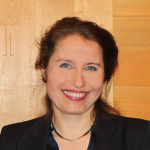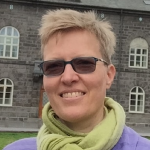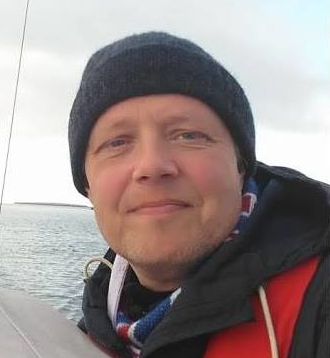SYMBIOSIS – Human-Microbial Relations in Everyday Life was a three-year research project, from 2021 to 2024, investigating selected symbiotic practices of humans and microbes in everyday life, their effects, affects, and social imaginaries. The project was based at the University of Iceland.

SYMBIOSIS brought together scholars from diverse disciplines: ethnology, anthropology, nutrition science, molecular biology and microbiology, to study the role of microbes in vernacular food practices – from growing, baking, fermenting, pickling and dairy making, through the digestive system and back to the soil through composting – as well as their implications for the physical, mental, and social well-being of humans, and their promise for a more sustainable future.
Key research questions included:
-
- How do people forge symbiotic relations with microbial species? In what mutualistic and commensal practices do they wilfully engage?
- How do such relationships affect human health — that is physical, mental and social well-being — and people’s perceptions thereof?
- What terms do people use to describe their relations with microbiota and what do they understand by these terms? How do they narrate these relations?
- How do emerging scientific knowledge and public discourses around microbiota affect vernacular practices relating to food, waste, soil, nutrition, and health?
- How does microbial matter and its transmission (help to) generate practices, consciousness, life-worlds, imaginaries, narratives, gut feelings, and social bonds?
- What models for sustainability can be conceived of by studying the practices and possibilities of human-microbial agencies?

Project board
 (PI) Valdimar Tr. Hafstein is a professor of folklore/ethnology at the University of Iceland.
(PI) Valdimar Tr. Hafstein is a professor of folklore/ethnology at the University of Iceland. (PL) Bryndís Eva Birgisdóttir is a professor in the faculty of food science and nutrition at the University of Iceland.
(PL) Bryndís Eva Birgisdóttir is a professor in the faculty of food science and nutrition at the University of Iceland. The late (PL) Viggó Þór Marteinsson was a professor at the faculty of food science and nutrition at the University of Iceland, and a group leader at the microbiology division of MATÍS.
The late (PL) Viggó Þór Marteinsson was a professor at the faculty of food science and nutrition at the University of Iceland, and a group leader at the microbiology division of MATÍS. (PL) Helga Ögmundardóttir is a lecturer of anthropology at the University of Iceland.
(PL) Helga Ögmundardóttir is a lecturer of anthropology at the University of Iceland. (PM) Áki Guðni Karlsson is a PhD-candidate in folklore/ethnology at the University of Iceland.
(PM) Áki Guðni Karlsson is a PhD-candidate in folklore/ethnology at the University of Iceland.Project Team
The project team consisted of researchers, post-doctoral fellows, and postgraduate students from diverse academic backgrounds. The following is a partial listing:
Dr. Birna G. Ásbjörnsdóttir is a health scientist in nutritional medicine, studying the relation of diet, gut flora and mental health.
Eysteinn Ari Bragason is an ethnologist who has researched sustainable food and recycling practices in the home, including homebrewing and composting.
Dr. Jón Þór Pétursson is an ethnologist who has done research into organic, heritage and health food products.
Ragnheiður Maísól Sturludóttir is an ethnologist studying human-microbial collaboration in food production, and a pioneer in the sourdough movement in Iceland.
Dr. Sigurlaug Skírnisdóttir is a biologist and food safety expert working for MATÍS.
Advisory Board
The project has established an external advisory board composed of internationally recognised experts in various aspects of human-microbial relations. They were:
Prof. Regina Bendix (University of Göttingen) is a leader in European Ethnology with long-standing research interest in foodways, craft practices, and sensory ethnography, and rich experience of interdisciplinary cooperation.
Prof. Jamie Lorimer (Oxford University) is a renowned environmental geographer whose research examines the production of environmental knowledge, combining more-than-human geography with science studies, using ethnographic, participatory and historical methods.
Prof. Alessio Fasano, MD (Harvard University) is a pioneering researcher of celiac disease, bacterial pathogenesis, and the effects of gut microbiota on health and autoimmune disease. He is one of the world’s most influential researchers (top 1% by citations in 2019, Web of Science).
Prof. Gísli Pálsson (University of Iceland) is a leading Icelandic anthropologist renowned for his work on biosocial relations, nature and society, and ethnography beyond the human.
Prof. Stefan Helmreich (MIT) is a leading scholar at the forefront of studying human-microbial relations and the emerging knowledge systems surrounding them.
Prof. Heather Paxson (MIT) is a pioneer in anthropological research into human-microbial relations; studying post-Pasteurian practices in the craft production of foods, and microbiopolitics more broadly.
Prof. Håkan Jönsson (Lund University) is an internationally recognized scholar of everyday food practices, and an active consultant in food development and innovation projects, especially in small scale, craft food production and culinary tourism.
Prof. Bernhard Tschofen (Zürich University) is a leading international expert in vernacular food practices and their role in regional placemaking in Europe, has studied pickling and fermentation, as well as interspecies-relations between humans and wolves.